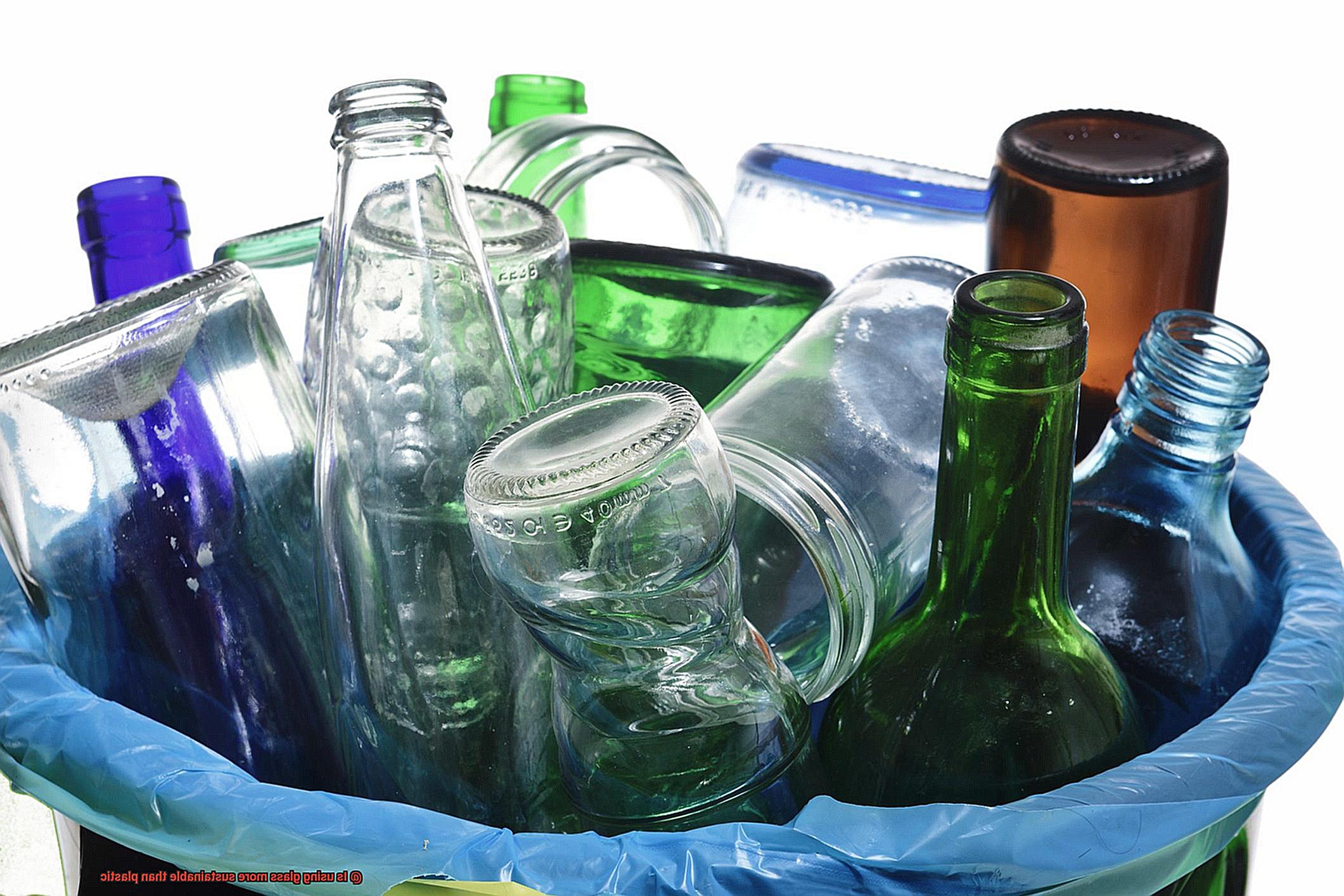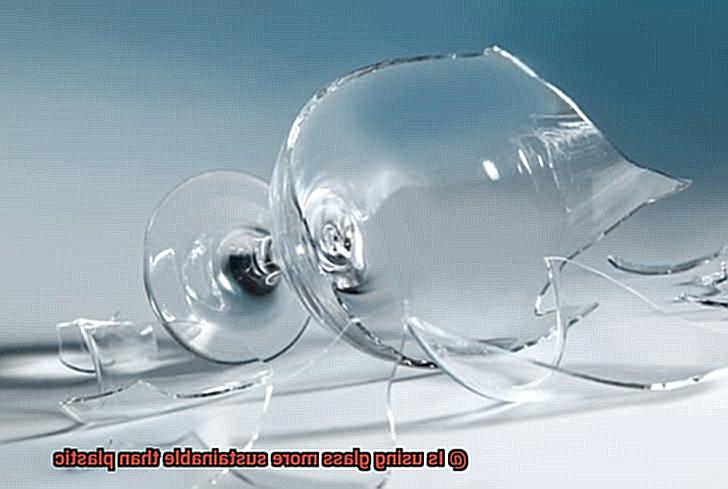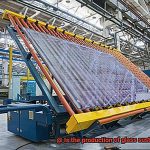Plastics have infiltrated every aspect of our lives, from the toothbrush we use in the morning to the takeout containers we rely on for dinner. However, it’s no secret that plastic pollution is wreaking havoc on our planet. The sheer volume of plastic waste generated each year is staggering, and it’s time to start exploring sustainable alternatives. Enter glass – a material that has been around for centuries but is now making a comeback as a green alternative to plastics.
Glass not only looks beautiful but is also non-toxic, non-reactive, and infinitely recyclable. But does this mean using glass is more sustainable than plastic? Can switching to glass make a significant difference?
In this blog post, we’ll delve into the details of using glass versus plastic. We’ll examine their environmental impact, manufacturing processes, and recycling ease. We’ll also weigh up the pros and cons of using glass and discuss whether it’s a practical alternative to plastic. So if you’re interested in learning how small changes can make a big difference in protecting our planet, keep reading to find out if using glass is indeed more sustainable than plastic.
What is glass and plastic?
Contents
Glass and plastic are two familiar materials that are an integral part of our everyday lives. Glass, a solid and transparent substance, is made from natural components like sand, soda ash, and limestone. It has been utilized for centuries to make windows, containers, and decorative objects. In contrast, plastic is a synthetic material derived from petroleum or natural gas. It can be molded into various shapes and sizes and is widely used to make products such as bags, bottles, and packaging materials.

Glass is considered the more sustainable option because it’s made from natural materials and is infinitely recyclable without losing its quality or purity. The recycling process of glass reduces the need for virgin raw materials, saves energy, and lessens greenhouse gas emissions. Additionally, when glass breaks down, it turns into tiny pieces known as cullet that can be used as a replacement for sand in construction projects or reused in new glass products.
On the other hand, plastic poses a significant threat to the environment due to its non-biodegradable nature. Plastic waste takes hundreds of years to decompose and accumulates in landfills and oceans, harming wildlife and marine life. Furthermore, plastic recycling is not as efficient as glass recycling since each type of plastic requires a specific recycling process.
Advantages of Glass over Plastic
When it comes to choosing between glass and plastic for storage and packaging purposes, it’s a no-brainer that glass is the better choice. As an expert on the topic, I’ve compiled a list of why glass has several advantages over plastic when it comes to sustainability.
Firstly, glass is infinitely recyclable, making it the ultimate eco-friendly option. Unlike plastic, which can only be recycled a limited number of times before losing its quality and purity, glass can be recycled indefinitely without any loss in quality. This means that the same glass container can be recycled over and over again, making it a more sustainable option than plastic.
Secondly, glass is non-toxic and safe for storing food and beverages. Glass is made from natural materials such as sand, soda ash, and limestone. In contrast, plastic may contain harmful chemicals such as BPA and phthalates that can seep into your food or drinks.
Thirdly, glass retains the original taste and quality of food and beverages. Glass does not leach chemicals or flavors into food and beverages, which means that the original taste and quality of the product are perfectly preserved. This makes glass a popular choice for storing wine, beer, and other beverages.
Fourthly, glass containers have a longer lifespan than plastic containers. Glass is more durable than plastic, which means it has a longer lifespan. This reduces the need for frequent replacement and disposal of containers, making it a more sustainable option in the long run.
Lastly, glass helps to reduce waste in landfills and oceans. Since glass is infinitely recyclable, it helps to reduce waste in landfills and oceans. With plastic waste being one of the biggest environmental problems we face today, using glass instead can make a significant difference.
Disadvantages of Glass over Plastic
As consumers become more conscious of their environmental impact, many are turning to glass as an eco-friendly alternative to plastic. While glass products may seem like the perfect solution, it’s important to note that there are some significant disadvantages to using this material.
One major drawback of glass is its weight. Compared to plastic, glass is much heavier, making it more expensive and energy-intensive to transport. This means that more fuel is required to move the same amount of glass compared to plastic, resulting in higher greenhouse gas emissions and increased transportation costs.
Another issue with glass is its fragility. Glass products are prone to breaking during transportation or use, leading to waste and the need for replacements. This requires additional resources, such as energy and materials, to produce new glass products. In contrast, plastic is much more durable and resilient, making it less likely to break and easier to transport.
The production of glass also requires a significant amount of energy due to the high temperatures involved in the manufacturing process. The raw materials used in glass production, such as sand and soda ash, are non-renewable resources, meaning that their extraction depletes the earth’s natural resources.
Moreover, recycling glass can be more challenging than recycling plastic. While both materials can be recycled indefinitely, glass recycling requires a separate collection system and specialized facilities. Due to this complexity, glass recycling rates are often lower than those for plastic, which means that more glass ends up in landfills.
Recyclability of Glass and Plastic
Recyclability is a critical component of sustainable living, and when it comes to glass and plastic, the difference in recyclability is stark. Glass is the clear winner in terms of sustainability, as it is 100% recyclable and can be recycled endlessly without any loss in quality or purity. The recycling process for glass requires less energy than creating new glass from raw materials, making it an eco-friendly option for those looking to reduce their carbon footprint.
When glass is recycled, it is crushed into small pieces called cullet, melted down, and shaped into new products, thus reducing the amount of waste that ends up in landfills. Its infinite recyclability makes it an ideal choice for those who care about the planet’s health and want to make a positive impact.
On the other hand, recycling plastics can be challenging. Different types of plastic have varying degrees of recyclability, with some being easier to recycle than others. PET plastics found in water bottles can be recycled, but not all recycling facilities accept them. Conversely, PVC plastics are not recyclable and can release harmful chemicals when incinerated.
Creating new plastic is energy-intensive and relies heavily on fossil fuels. Using recycled plastic instead of creating new plastic can significantly reduce carbon emissions. However, the challenges associated with recycling plastic make it less sustainable than glass.
In summary, while both glass and plastic can be recycled, glass is the more sustainable option due to its infinite recyclability and lower energy requirements for the recycling process. It’s important to note that reducing overall consumption of both materials through waste reduction efforts is also a crucial step in promoting sustainability.

Environmental Impact of Production
While both materials have a significant environmental impact, glass proves to be a more environmentally friendly option than plastic.
Glass is made from natural resources such as sand, soda ash, and limestone, which are abundant and easily sourced. The production process of glass is energy-intensive but relatively clean and does not emit harmful chemicals or pollutants into the environment. In contrast, plastic is made from non-renewable resources like petroleum, which has a damaging effect on the environment due to extraction and processing. Moreover, the production of plastic involves the use of harmful chemicals that cause pollution and contribute to climate change. Plastic production also creates a significant amount of waste in the form of greenhouse gases released during manufacturing.
One of the most impressive features of glass is its infinite recyclability. Glass can be recycled over and over again without losing its quality or purity, making it an ideal material for recycling programs. In contrast, plastic can only be recycled a limited number of times before its quality degrades. Additionally, not all types of plastic can be recycled, and those that can are often downcycled into lower-quality products.
When it comes to biodegradability, glass and plastic have different impacts on the environment. Glass is not biodegradable and will remain in the environment for thousands of years if not recycled or disposed of properly. However, because it is inert and non-toxic, it does not pose a threat to wildlife or the environment. Plastic, on the other hand, poses a significant threat to the environment as it releases harmful toxins into soil and waterways and remains in the environment for hundreds of years.
Biodegradability of Glass and Plastic
While both materials have their advantages and disadvantages, glass is definitely the clear winner when it comes to being environmentally friendly.
Glass is made from natural materials like sand, soda ash, and limestone. These materials are abundant and readily available, making glass a sustainable choice for packaging and other products. What’s more, glass is 100% recyclable, which means it can be recycled over and over again without losing quality or purity. And unlike plastic, glass is non-toxic and does not release harmful chemicals into the environment.
Plastic, on the other hand, is made from petroleum – a non-renewable resource that requires a lot of energy to extract and process. Plastic waste can take hundreds of years to decompose and often ends up in our oceans, polluting the environment and harming wildlife. When plastic breaks down, it releases toxic chemicals into the environment, causing further damage to our ecosystem.
While glass may require more energy to produce than plastic, its infinite recyclability makes it a more sustainable option in the long run. By choosing products made from sustainable materials like glass and recycling them properly, we can make a difference in creating a more sustainable future.
ERMwAglIvjQ” >
Conclusion
After weighing the pros and cons of using glass versus plastic, it’s clear that glass is the more sustainable option. Not only is it made from natural components, but it’s also infinitely recyclable without any loss in quality or purity. Plus, it preserves the original taste and quality of food and beverages, making it a popular choice for storing wine, beer, and other drinks.
On the other hand, plastic poses a significant threat to our environment due to its non-biodegradable nature. Plastic waste takes hundreds of years to decompose and accumulates in landfills and oceans, harming wildlife and marine life. Additionally, plastic recycling is not as efficient as glass recycling since each type of plastic requires a specific recycling process.
While there are some drawbacks to using glass over plastic such as its weight and fragility, the benefits far outweigh them when it comes to sustainability. By choosing products made from sustainable materials like glass and properly recycling them, we can make a real difference in creating a more eco-friendly future. It’s time to start exploring alternatives to plastics that have infiltrated every aspect of our lives so that we can protect our planet for future generations.
In short, let’s all do our part by opting for glass over plastic whenever possible. Together we can reduce waste in landfills and oceans while lowering greenhouse gas emissions during production.





